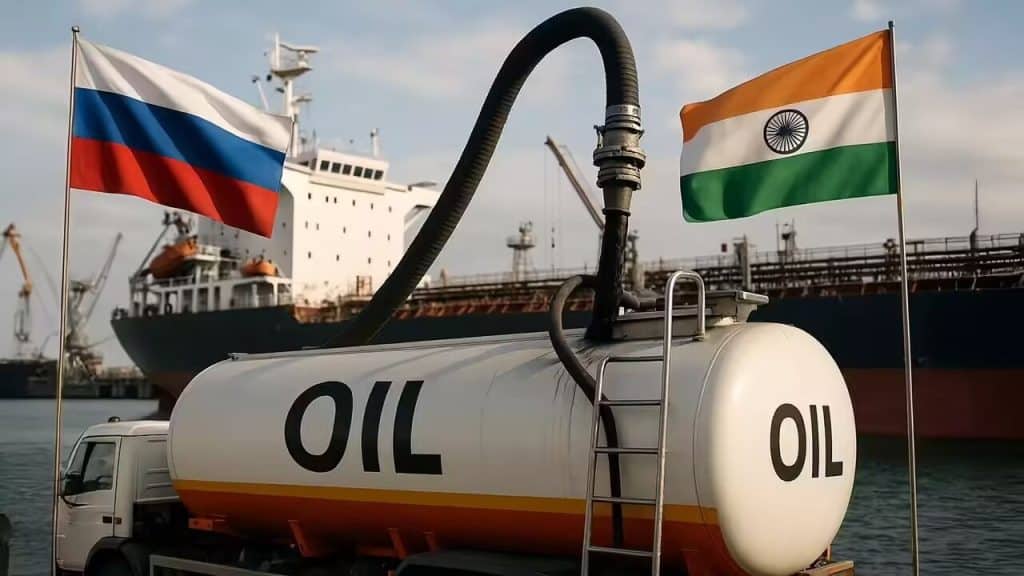Why can’t India abruptly halt Russian crude oil imports?
Donald Trump claims to have received assurances from Indian Prime Minister Narendra Modi that New Delhi will stop buying Russian crude. Russia remains one of the world’s top producers and exporters of crude. While India’s foreign ministry has strongly denied any contact between Modi and Trump on the matter, it is worth noting that stopping imports of Russian crude is easier said than done.
The situation has become a flashpoint in a diplomatic and trade spat between India and the US. India faces a 50% tariff on its exports to the US, 25% of which is what the US has called a “punitive tariff” on Russian crude imports.
India’s significant dependence on Russian oil, which now accounts for more than a third of all crude oil processed in Indian refineries to produce fuels such as petrol and diesel, cannot be stopped suddenly, according to an assessment by the analytics firm Kepler. The most logical option at the moment, the company said, is to gradually reduce imports. Let’s take a look at India’s oil trade, its dependence on Russian crude and its alternatives.
India’s oil trade with Russia and the world
As the world’s third-largest oil importer and consumer, India is heavily dependent on imports for its crude oil needs, with 87% of its consumption of around 5.5 million barrels per day coming from abroad. Historically, India has sourced around 66% of its crude oil needs from Middle Eastern countries, mainly Iraq, Saudi Arabia and the United Arab Emirates.
India started buying discounted Moscow oil after Western sanctions against Moscow over its war in Ukraine began in February 2022, when Western countries refused to buy Russian oil. A key factor in India’s decision to buy Russian oil was the significant price advantage. While the discounts were initially set to reach $19-20 per barrel in 2023, they have now fallen to $3.5-5 per barrel.
As a result, Russia’s share of India’s total oil imports increased from 1.7% in FY2020-2019 to 40% in FY2023-2024, making Russia India’s top oil supplier. Russian oil exports to India reached 88 million tonnes in FY2025, accounting for a significant portion of India’s total imports of 245 million tonnes.
Russian oil shipments reached 1.77 million barrels per day in early October. Iraq came in second, supplying around 1.01 million barrels per day, followed by Saudi Arabia at 830,000 barrels per day. The United States overtook the United Arab Emirates to become the fourth-largest supplier with 647,000 barrels per day. The UAE was next with 394,000 barrels per day.
India’s crude oil imports in September rose to around 4.7 million barrels per day, up 220,000 barrels per day from the previous month. This remained flat from a year earlier. Russia remained the largest supplier, delivering about 1.6 million barrels per day, or 34 percent of total imports. This was about 160,000 barrels per day less than Russia’s average imports in the first eight months of 2025, according to preliminary Clapper data.
Why can’t India suddenly stop importing Russian oil?
According to analysts at India’s PTI news agency, an immediate halt to Russian crude is an almost impossible scenario. Oil purchases are made on the basis of four- to six-week futures contracts, which means that current cargoes are scheduled for delivery in early to mid-September. Contracts have already been closed until the end of November. So, if Trump’s claim is correct, Indian refiners will stop new contracts and Russian oil shipments may decline from late November.
Analysts say that current import levels from Russia for the coming weeks, at 1.6-1.8 million barrels per day, look “more realistic” based on existing contracts. India’s oil infrastructure remains heavily dependent on Russian crude. Kepler analysts say that given the significant price advantage, current purchases are commercially viable for refiners, even though discounts have now been reduced.
The economic logic remains strong. Despite the reduced discounts compared to 2023, Russian crudes, especially Urals, are still cost-effective and offer higher margins for Indian refiners.
Kepler’s analysis contradicts Trump’s claim that India will reduce its imports of Russian oil, describing it as political rhetoric without official confirmation from New Delhi. The data suggests a steady flow of imports, with the decline in imports between July and September largely attributable to seasonal maintenance operations at India’s state-owned refineries and unrelated to tariff concerns.

